Through a unique cooperation between EWC and the Romanian Social Development Fund, Romanian school staff and local administrations are brought together to improve the quality of their local schools. The goal? To build safe and inclusive learning environments for all.
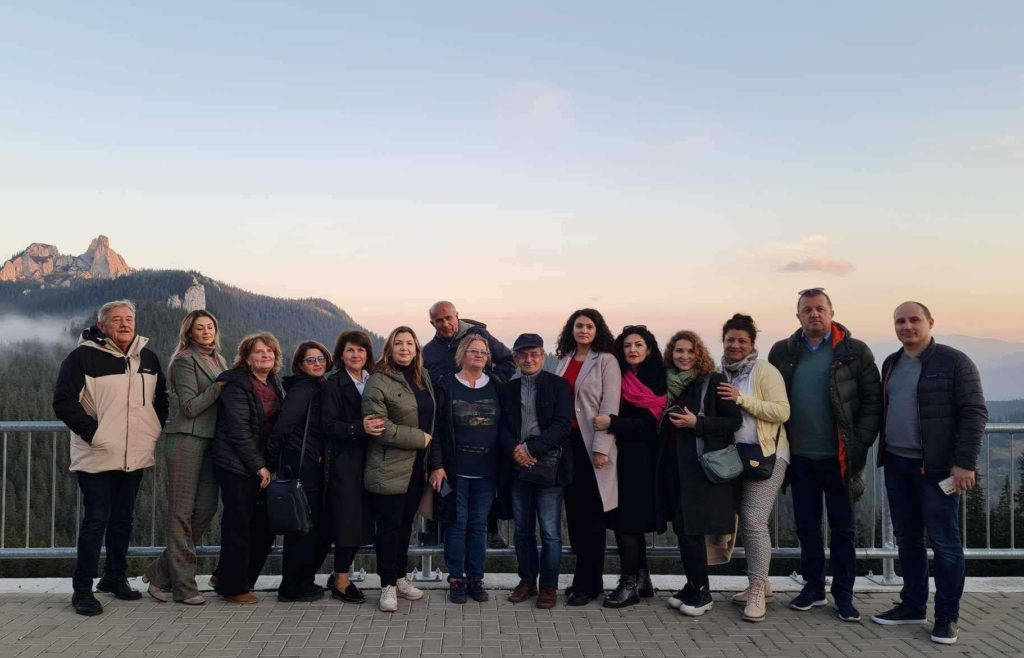
By Veslemøy Maria Svartdal
“I will always remember that the idea of equality was clear, imposed and unnegotiable, no matter what the social status, the financial possibilities or the type of ethnic minority we belonged to,” says mayor of Gura Humorului, Marius Ioan Ursaciuc, when asked about what remembers most fondly from his school days.
The mayor of Gura Humorului, a small town in the Romanian region of Suceava, is one of the participants in the programme “Promoting Inclusion and Quality Education in Romania” – a bilateral initiative of EWC and the Romanian Social Development Fund. The goal is to prevent school drop-out cases, reduce discrimination of Roma and other minorities, and provide all children in the counties with a quality education.
Through the project, Romanian teachers, school principals, mayors and other representatives of local government come together to find ways to make their schools inclusive and based on democratic principles.
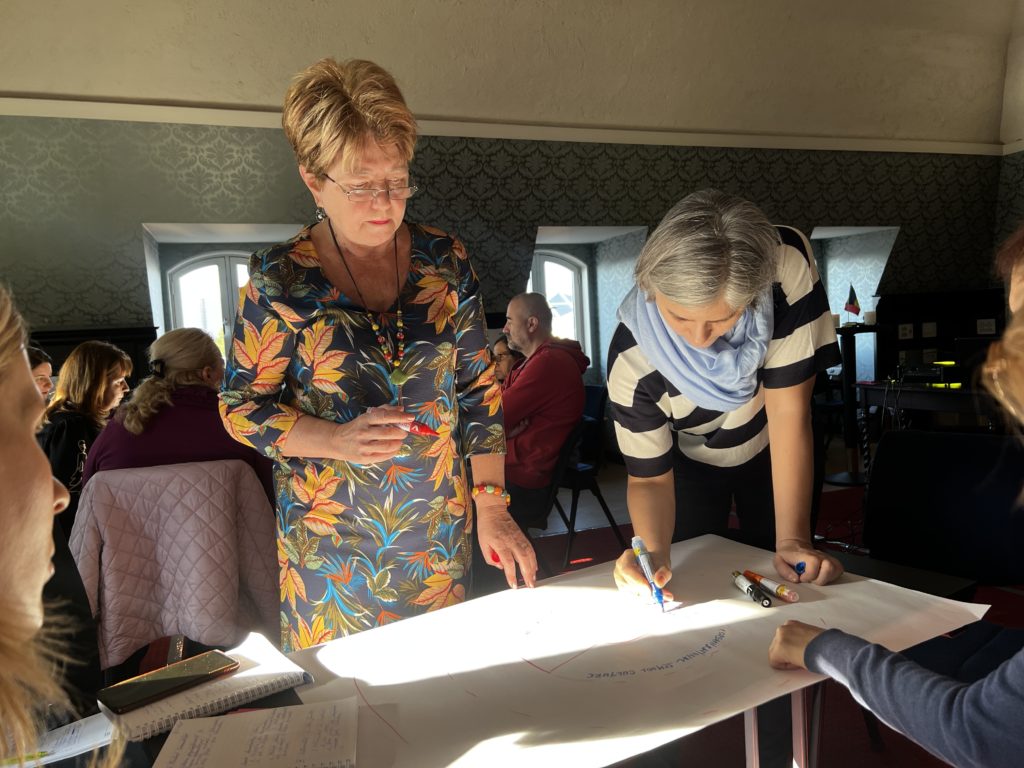
For mayor Ursaciuc, the cooperation with the school administrations is of great importance:
“If we want to lessen discrimination and to make tolerance understood, the municipality is the key. Together with school administrations, starting from primary school and going on to college, I really consider that we can improve inclusion and prevent dropouts by promoting projects and programmes that involve minorities and offer them the chances to create a society in which equality is the main feature.”
Making Schools a Safe Place to Learn
The programme focuses on two Romanian regions – Călărași and Suceava – that have both been chosen due to high levels of poverty and dropout rates in their areas. Many schools have a high level of Roma pupils – a minority that for centuries have faced discrimination in European countries.
Through the project the Romanian participants are offered training in inclusion, Roma history and culture, and democratic competences developed by the Council of Europe with support from EWC.
They have also partaken in workshops in Oslo, and visits to local institutions to gain new ideas and exchange experiences. The visit to Benterud primary school in Lørenskog outside of Oslo, was a particular highlight for many of the participants. Benterud is the school with the highest level of Roma pupils in Norway.
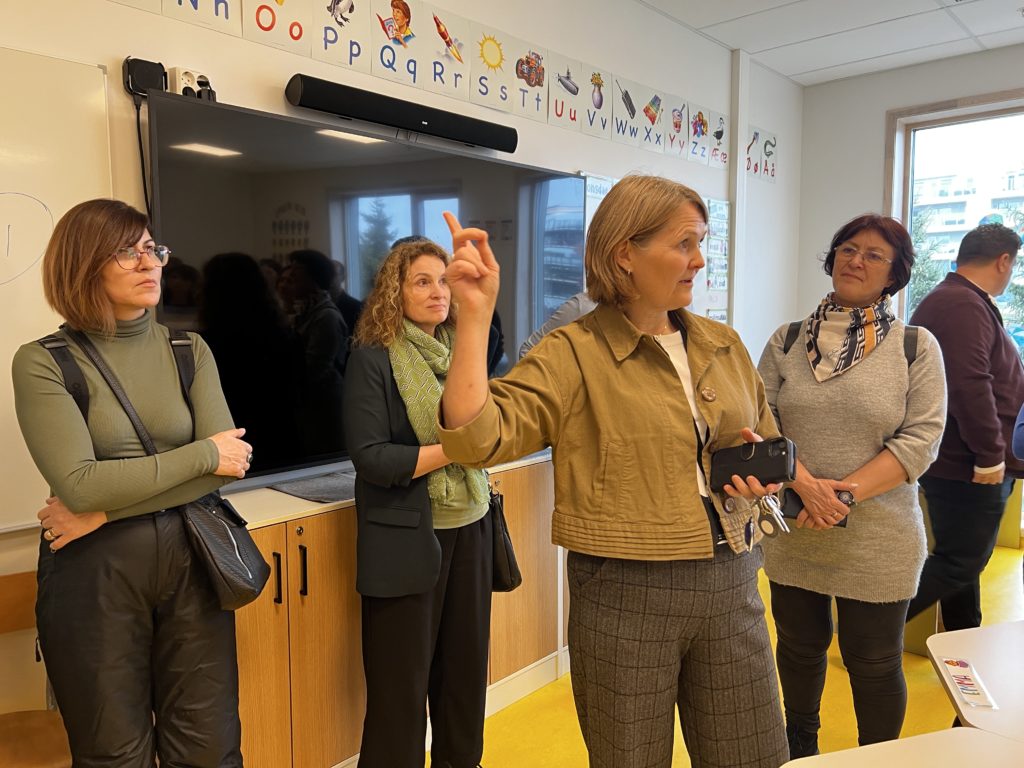
“The school visit was the most important part. I wanted to see another school and learn something from them for my children, so I can bring back Information and new ideas to them,” says Moise Liviu, principal at Unirea secondary school. “The most beneficial part of the workshop for me has been to see a new system, to learn new perspectives on inclusion, and to meet new people so we can trade ideas and maybe cooperate in the future.”
Read also: A school is not a Castle with Closed Walls
Magdalena Rusu, municipality representative, working on introducing Council of Europe policy in Suceava, agrees with principal Liviu:
“It was inspiring for me to see the school here,” she says. “I’m looking from the point of view of investing. How do the schools work in Norway? What I can introduce back home, and how I can improve the school? I will talk with the mayor to enhance our activities to support Roma and other cultures. It is wonderful to get to spend a week together with the school staff, to improve the relationship between the teachers at the school and the municipality. I have so many ideas that I’m taking home with me!”
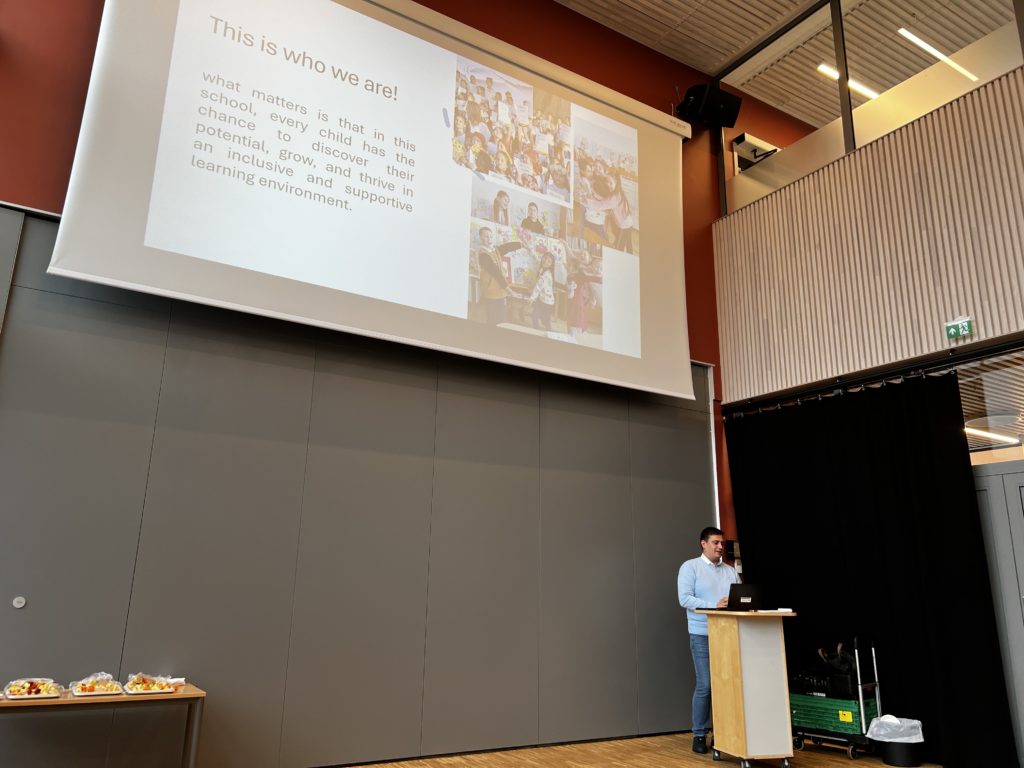
At the end of October, Romanian school children have time off from school, but that did not stop 30 principals and teachers from turning up to the centres of Călărași and Suceava to join a five-day training with an international training team from Romania, North Macedonia and the Czech Republic.
At the seminar hall in Călărași, principal Daniela Soare and primary school teacher, Marilena Toma got a big surprise.
“She was my schoolteacher!” Marilena laughs. “I was always looking for an opportunity to reconnect. When I was doing my pedagogical practice in school, I always wanted to work in her kindergarten, but it never happened. I was always placed somewhere else.”
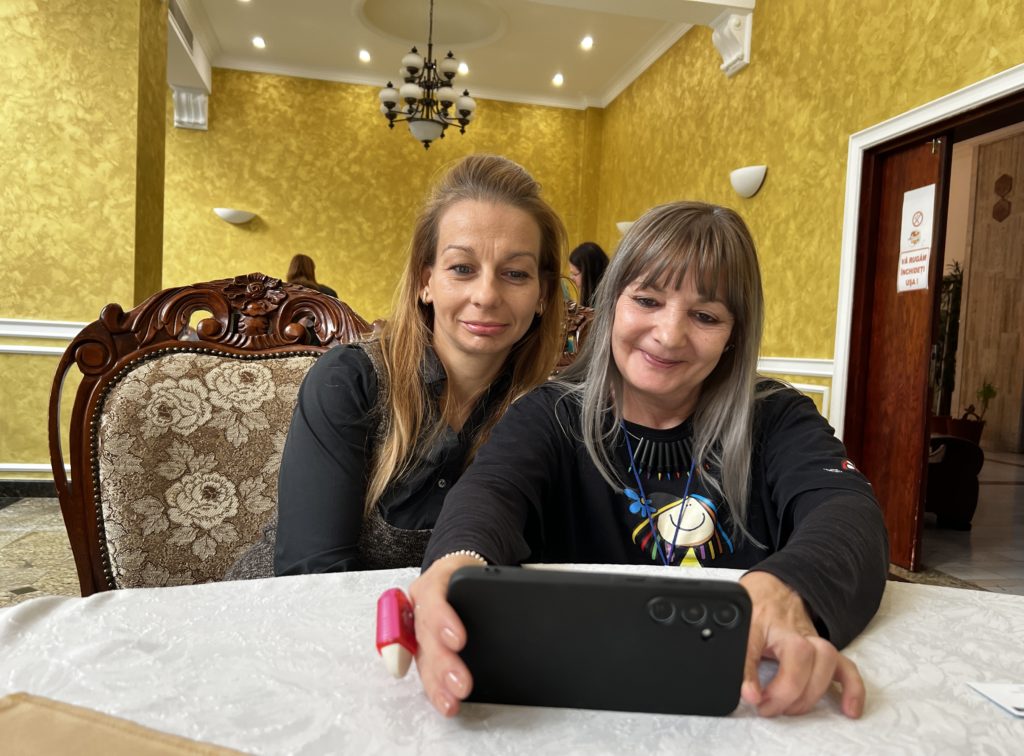
30 years ago, Daniela was Marilena’s kindergarten teacher, and Daniela has a black-and-white photo on her phone to prove it. They reconnected online during the pandemic in 2020 but had never met face to face until the training session in Călărași.
For Marilena, it was the fond memories of her time with Daniela that made her become a teacher.
“For me it all started when I was in kindergarten, and I saw my teacher,” she explains. “I admired how she dressed, how she spoke. She had a special energy. She was always happy, and the one time she cried, she quickly dried her eyes for her children’s sake. I try to emulate this behavior with my own pupils. I try to never show that I am tired or upset. I was never bored in class with Daniela as my teacher. There were always some activities going on.”
Daniela believes you must have a special calling to become a teacher:
“There is something that has come from above. Teaching is not something you learn at school. You need something very special to become a teacher. Something from within. The best part of being a teacher is that I can give the children something from within myself. The joy I experience at kindergarten nurtures me. It is very fulfilling.”
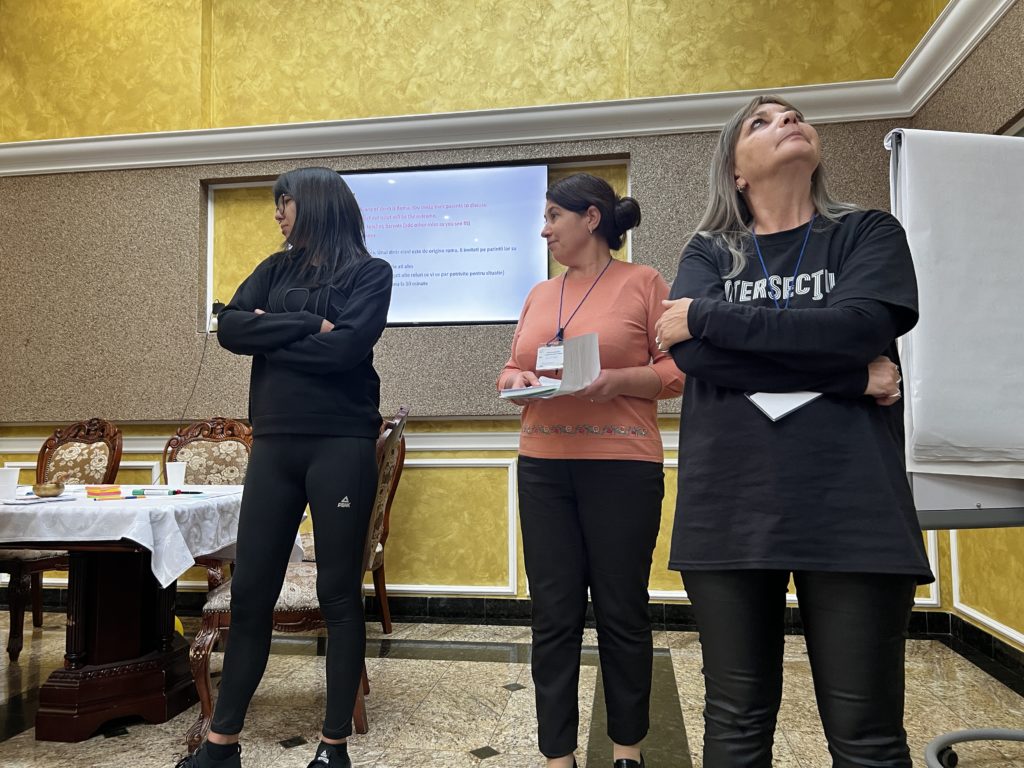
While Daniela has 41 years of experience as a teacher, and Marilena 15 years, they both came to the EWC training sessions to learn more and to increase their competences.
“It is important to constantly evolve as a teacher. Every time you can learn something new,” Daniela smiles.
The five-day workshops in Romania were filled with interactive lessons in inclusion, how to stop discrimination and ostracization, how to communicate with the Roma minority, and how to strengthen the quality of education by involving students, parents, school staff and the local community in making the school a safe and welcoming place to learn.
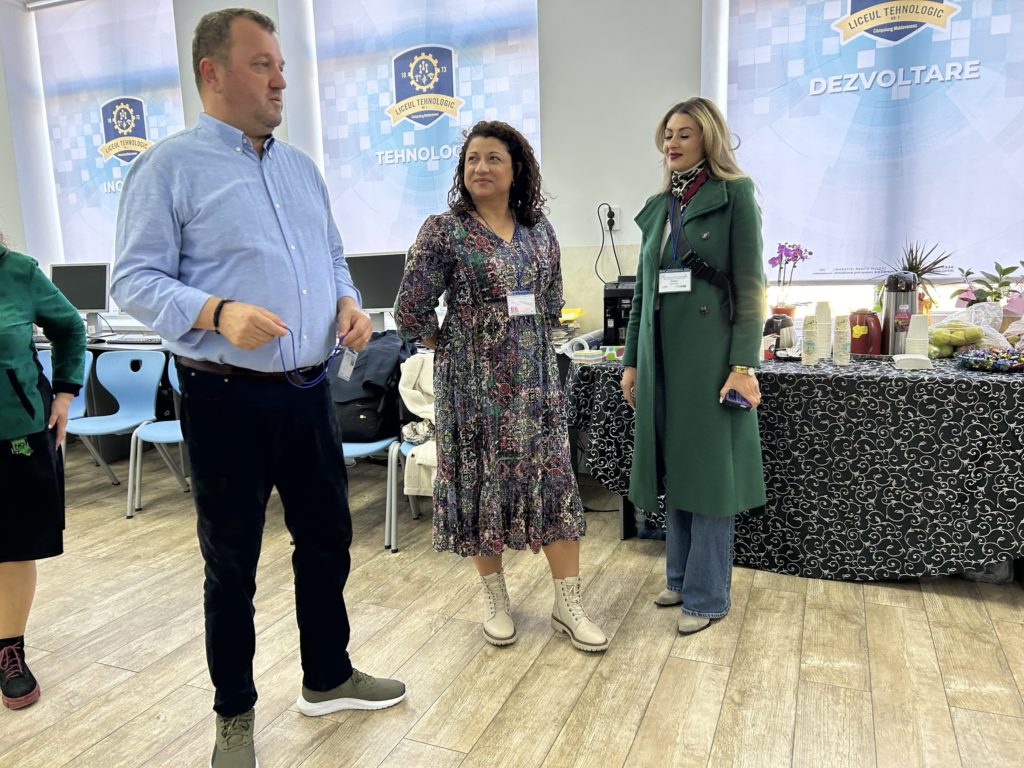
Building up the Children’s Confidence
“It is important to build the confidence of children and make sure they are not afraid to make mistakes,” explains trainer Ramiza Sakip. “Often Roma children as sitting in the back of the classroom. They are not mixed with other children. We need to make sure that every child feels appreciated.”
Read also: Romani Language is the Main Identity Element in Our Heritage
In conversation with trainer Jana Randa, the principals and teachers discussed what challenges they faced in their profession.
A large issue was the drop-out rates in their communities. Many children are not encouraged to go to school, because their parents prefer to keep them at home to help with chores. Their role models are influencers who have become millionaires without going to school. At the same time, they see people in low-paying jobs and say, “Why should I be like you?”
Part of EWC’s mission in teaching education for democratic citizenship is to empower the participants and give them the confidence and capability to take part in the local community around them. Jana reminded them that if they focused on the things they actually could change, rather than lager issues that would be harder to address, they could make a big impact on their school and their local community.
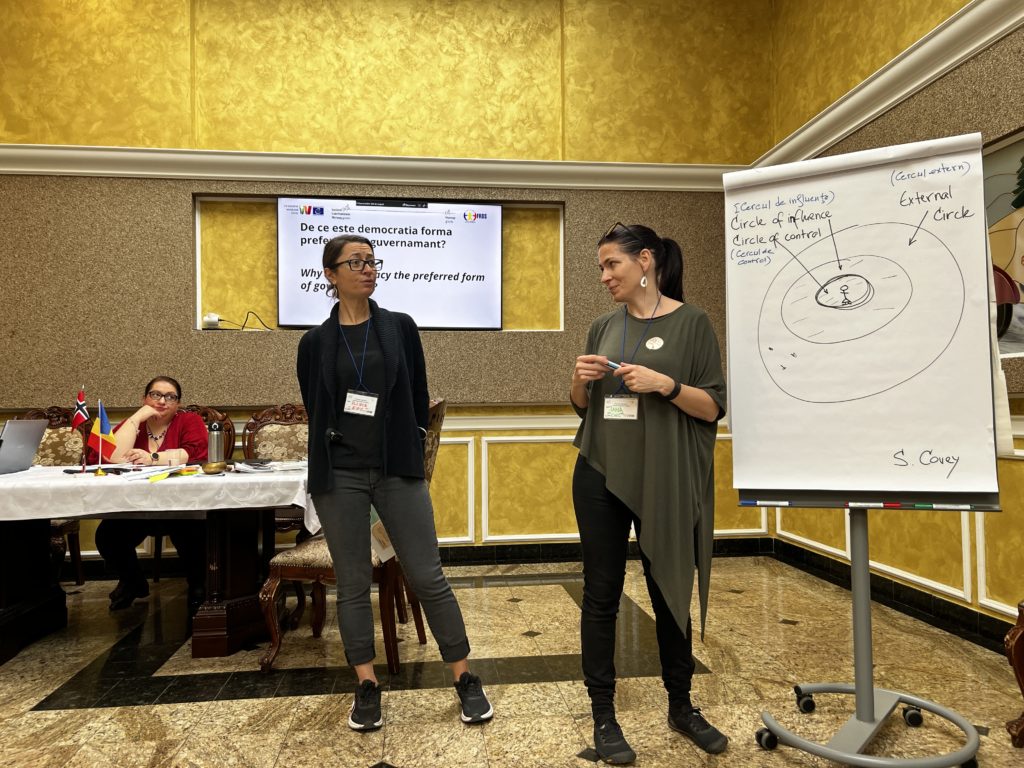
Projects for the Future
At the end of the five-day-training, participants were expected to have created a project for improving inclusion at their school.
“At the end of the school year, I will organize some activities to promote diversity and to prevent discrimination and school drop-out, and to avoid abuse and neglect of children,” said one teacher.
“I will teach about tolerance through the activities I will organize. I will try to explain to the students the values of being a democratic citizen, so that they can make a big change in our society when they are grown,” said another.
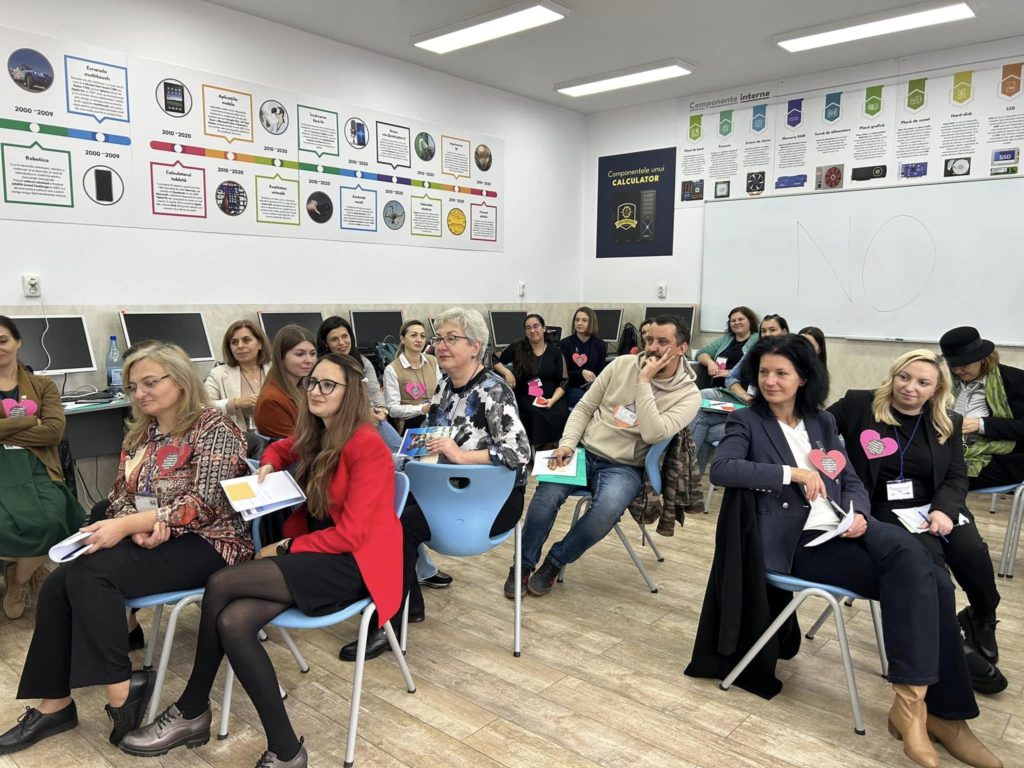
Building a Dream School
For teacher Cristina Bianca Istrate, who teaches English at Modelu Secondary School – a modern and well-financed school in Călărași – it is the proximity to Bucharest that is the main concern:
“We want to keep our best students in school rather than [for some of them] to leave for the city after fourth grade. We want to open the school gate, to include the local community into the school more than they already are. We are a diverse school, but we need to act as one community.”
During one of the roleplaying games, Cristina and her colleagues came up with designing a virtual reality room at school which could be used for several different subjects – languages, history, natural sciences and others – and which would help children develop from the academic level they are currently at.
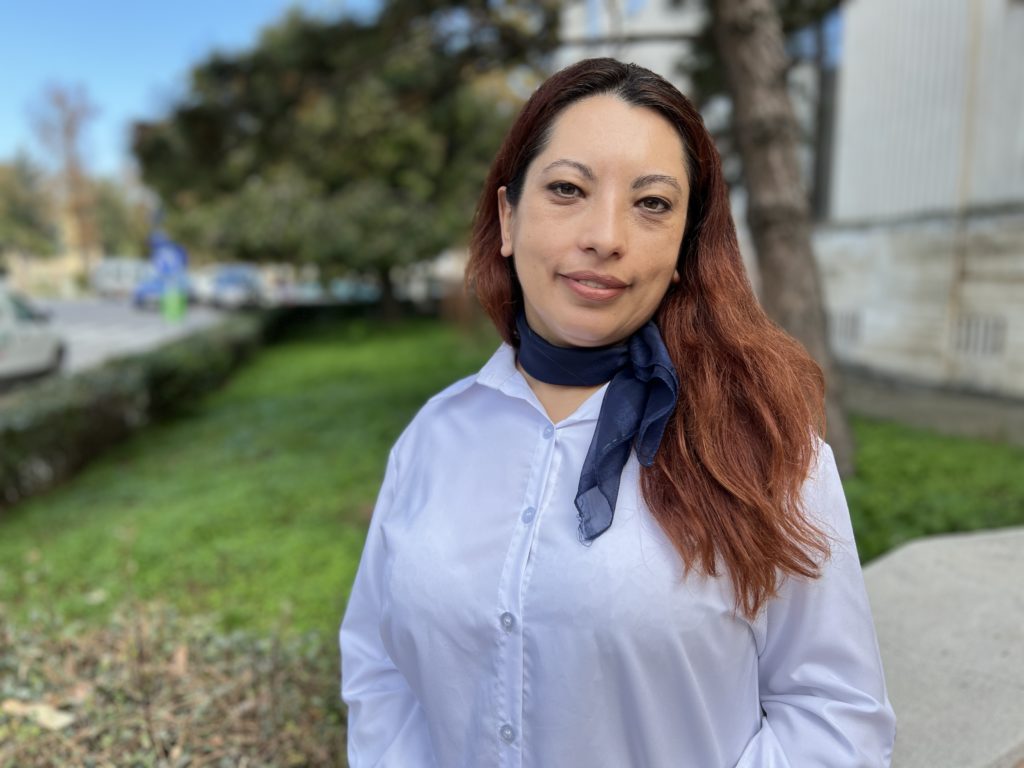
Realizing that this is a good idea that would improve the quality of education in their school, the staff at Modelu are now looking for grants to make the room a reality.
“The VR room was the result of a brainstorm in our team during the course. What started as a game became a serious matter. We are definitely keen on pursuing it because we know that in the long term it would benefit our students.”
Cristina has been a teacher for 12 years, and originally it was her mother that steered her career path towards education. She heard about the course offered by EWC and the Romanian Social Development Fund from her principal.
“I was told about it by my Principal, Mrs. Adriana Chiran, and curiosity kicked in: inclusion is a sensitive point in today’s world; it is useful to learn about it.”
In Cristina’s dream, schoolteachers would not shy away from using technology if it helped students achieve academic performance.
“It would be an inclusive space, allowing for access rather than restricting it, and it would work with children, their families and local organizations. The school should be a partner in Erasmus programs, so that the students and the teachers would become part of a wider, European environment.”
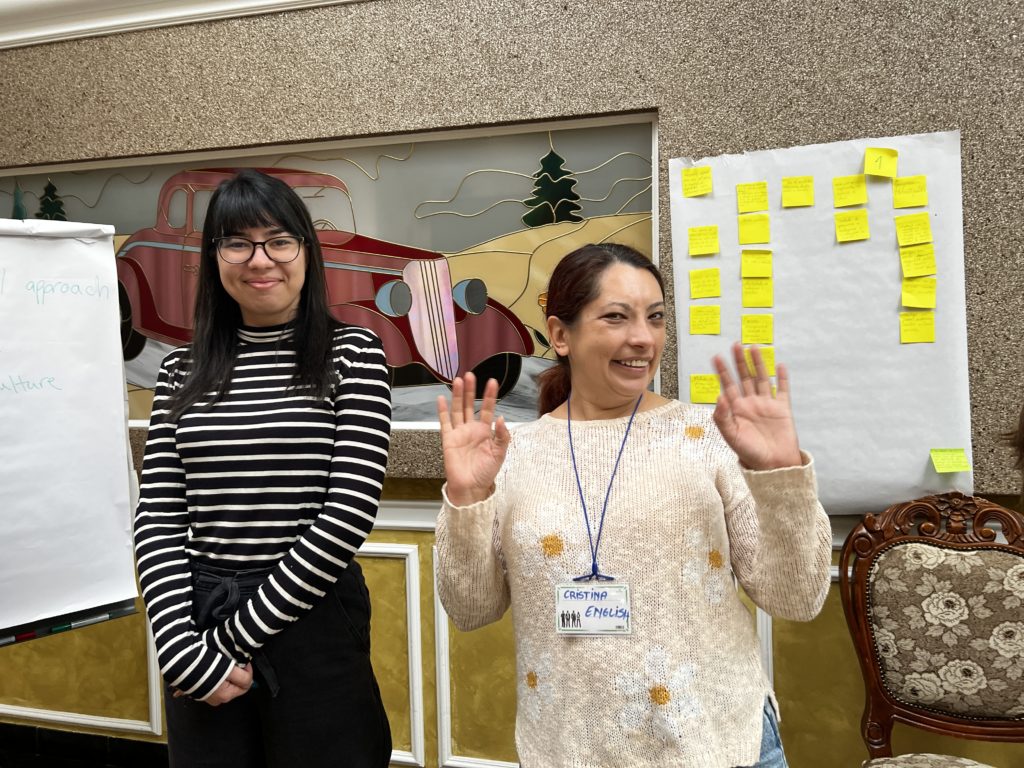
Cristina believes teachers play a pivotal role in shaping a student’s future in society, especially in poor communities where education is a gate to a better life. She says that she has heard many parents telling their children that they must study hard so they can get away from their rural community.
“However, life showed that educated people changed communities for the better. They did not need to escape because they changed the world around them,” she says.
The project is implemented under the Local Development, Poverty Reduction, and Enhanced Roma Inclusion programme and funded by the EEA Norway Financial Mechanism 2014-2021.